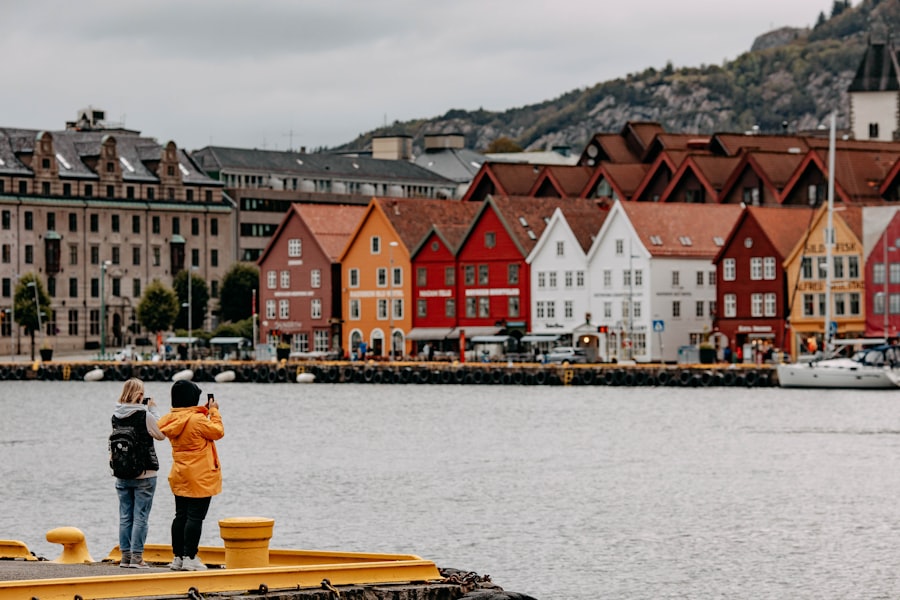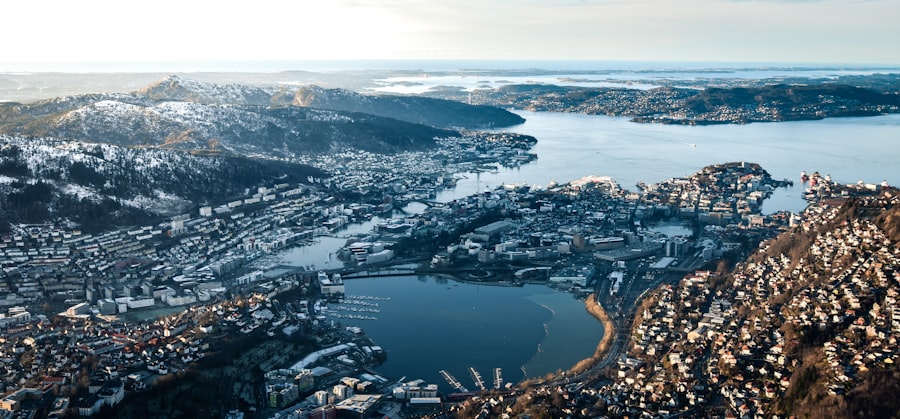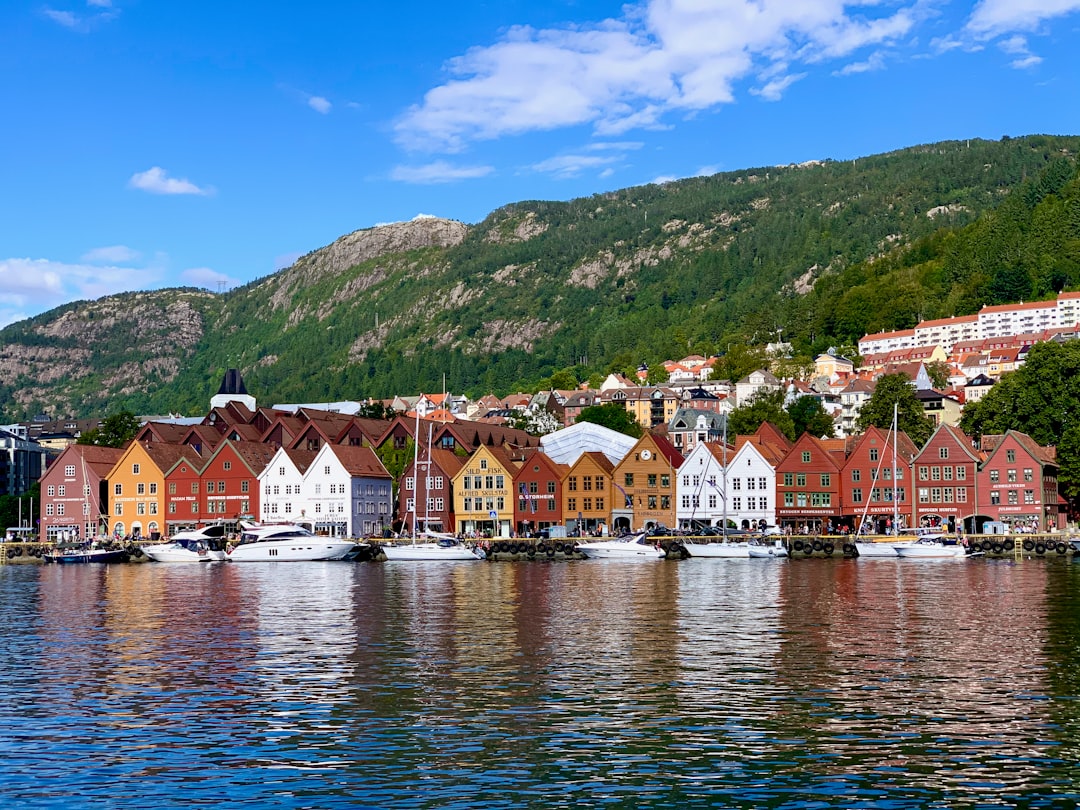Ascension Day, celebrated forty days after Easter, holds a profound historical significance in Norway, tracing its roots back to the early Christianisation of the country. This day commemorates the ascension of Jesus Christ into heaven, an event that is pivotal in Christian theology. The observance of Ascension Day in Norway can be linked to the broader narrative of the nation’s transition from paganism to Christianity, which began in earnest during the Viking Age.
As missionaries spread the Christian faith throughout the Scandinavian region, they established various religious observances, including Ascension Day, which became an integral part of the liturgical calendar. The historical importance of Ascension Day is further underscored by its role in shaping community life and social structures in Norway. In the centuries following its introduction, the day became associated with various local customs and traditions, often reflecting the agricultural calendar.
For instance, many rural communities would mark this day with festivities that celebrated the arrival of spring and the promise of a fruitful harvest. Over time, these celebrations evolved, intertwining religious observance with local culture, thus solidifying Ascension Day’s place in Norwegian history. Your journey to a smooth relocation starts here. Talk one-on-one with a Norway Relocation specialist and turn your plan into a reality.
Summary
- Ascension Day has been celebrated in Norway since the Middle Ages, marking the ascension of Jesus Christ into heaven.
- Christianity has played a significant role in shaping Norwegian culture and traditions, including the observance of Ascension Day.
- Ascension Day became a public holiday in Norway in 1770, reflecting the influence of Christianity on the country’s calendar of public holidays.
- Secularism has led to a shift in the significance of public holidays in Norway, including Ascension Day, as the country becomes more diverse and inclusive.
- Ascension Day is deeply connected to Norwegian identity, reflecting the country’s historical and cultural ties to Christianity.
The role of Christianity in shaping Norwegian culture and traditions
Christianity has played a pivotal role in shaping Norwegian culture and traditions, influencing everything from art and literature to social norms and public holidays. The introduction of Christianity in Norway brought with it a new set of values and beliefs that gradually permeated various aspects of daily life. The church became a central institution, not only for spiritual guidance but also for community cohesion.
Festivals and holy days, such as Christmas and Easter, were infused with Christian significance, while also incorporating pre-existing pagan customs, creating a unique blend that characterises Norwegian culture today. Moreover, Christianity has contributed to the moral framework within which Norwegians operate. Values such as compassion, community service, and respect for others are deeply rooted in Christian teachings and have become cornerstones of Norwegian identity.
This influence is evident in the way Norwegians celebrate public holidays, where religious observances often serve as opportunities for family gatherings and community events. The intertwining of faith and culture has fostered a sense of belonging among Norwegians, reinforcing their shared identity while also allowing for regional variations that enrich the national tapestry.
How Ascension Day became a public holiday in Norway

Ascension Day was officially recognised as a public holiday in Norway in 1736, reflecting the growing importance of religious observance in the lives of Norwegians. The decision to designate this day as a public holiday was influenced by both ecclesiastical authority and societal demand for a structured calendar of observances that aligned with Christian teachings. As more people began to embrace Christianity, there was a collective desire to honour significant events in the life of Christ, with Ascension Day emerging as a key date on the liturgical calendar.
The establishment of Ascension Day as a public holiday also coincided with broader societal changes in Norway during the 18th century. As the nation began to modernise and urbanise, there was an increasing recognition of the need for communal celebrations that could foster unity among diverse populations. By making Ascension Day a public holiday, authorities aimed to create a shared experience that would reinforce social bonds while also providing an opportunity for reflection on spiritual matters.
This move not only legitimised the day’s significance but also ensured its continued observance across generations.
The impact of secularism on public holidays in Norway
In recent decades, Norway has experienced a notable shift towards secularism, which has had profound implications for public holidays, including Ascension Day. As society becomes increasingly diverse and pluralistic, there is a growing recognition that not all citizens identify with Christian beliefs or practices. This shift has prompted discussions about the relevance of traditional public holidays and their place within a modern secular framework.
While Ascension Day remains a recognised holiday, its observance is now viewed through a more inclusive lens that acknowledges the varied beliefs present within Norwegian society. The impact of secularism on public holidays has led to a re-evaluation of how these days are celebrated. Many Norwegians now approach Ascension Day not solely as a religious observance but as an opportunity for leisure and family time.
This transformation reflects a broader trend where public holidays are increasingly seen as moments for personal reflection or community engagement rather than strictly religious observance. Consequently, while Ascension Day retains its historical significance, its meaning has evolved to accommodate a more diverse population.
The connection between Ascension Day and Norwegian identity
Ascension Day serves as an important touchstone for Norwegian identity, encapsulating both historical and cultural dimensions that resonate with many citizens. For those who identify with Christianity, the day represents a significant moment in their faith journey, reinforcing their connection to a long-standing tradition that has shaped their cultural heritage. However, even among those who may not actively practice Christianity, Ascension Day can evoke feelings of nostalgia and belonging, as it is intertwined with collective memories and shared experiences.
The connection between Ascension Day and Norwegian identity is also evident in how communities come together to celebrate this day. Many towns and cities organise events that reflect local customs and traditions associated with Ascension Day, fostering a sense of unity among residents. These gatherings often include outdoor activities, family picnics, and cultural performances that highlight Norway’s rich heritage.
In this way, Ascension Day transcends its religious origins to become a celebration of what it means to be Norwegian.
The importance of religious diversity in Norway’s public holiday calendar

As Norway continues to evolve into a more multicultural society, the importance of religious diversity within its public holiday calendar cannot be overstated. While Ascension Day remains significant for many Christians, it is essential to recognise that Norway is home to individuals from various faith backgrounds, each contributing to the nation’s cultural mosaic. This diversity presents both challenges and opportunities when it comes to public holidays; it encourages dialogue about inclusivity while also prompting discussions about how best to honour different traditions.
Incorporating religious diversity into the public holiday calendar can foster greater understanding and respect among different communities. By acknowledging holidays from various faiths—such as Eid al-Fitr for Muslims or Diwali for Hindus—Norway can create an environment where all citizens feel valued and included. This approach not only enriches the national narrative but also promotes social cohesion by encouraging interfaith dialogue and collaboration on community initiatives.
The influence of tradition and heritage on public holiday observance in Norway
Tradition and heritage play a crucial role in shaping how public holidays are observed in Norway, including Ascension Day. Many customs associated with this day have been passed down through generations, reflecting the values and beliefs of those who came before. These traditions often include specific rituals, such as attending church services or participating in community events that celebrate local culture.
As such, Ascension Day serves as an opportunity for Norwegians to connect with their past while also reinforcing their cultural identity. The influence of tradition is particularly evident in rural areas where local customs may vary significantly from those observed in urban centres. For instance, some communities may incorporate unique folk practices or regional dishes into their Ascension Day celebrations, highlighting the rich tapestry of Norwegian heritage.
This emphasis on tradition not only enriches the experience of observing public holidays but also fosters a sense of pride among citizens who recognise the importance of preserving their cultural legacy.
The role of government in recognising and celebrating religious holidays in a secular society
In a secular society like Norway, the government plays a vital role in recognising and celebrating religious holidays while balancing the need for inclusivity among diverse populations. While Ascension Day remains an official public holiday, there is an ongoing dialogue about how best to honour this day within a framework that respects all citizens’ beliefs. The government’s approach often involves promoting awareness about various religious observances while ensuring that public institutions remain neutral spaces where individuals can freely express their faith.
Moreover, government initiatives aimed at fostering interfaith dialogue can help bridge gaps between different communities during public holidays like Ascension Day. By encouraging collaboration between religious organisations and civic bodies, authorities can create opportunities for shared celebrations that honour multiple traditions. This approach not only reinforces social cohesion but also demonstrates a commitment to upholding democratic values within a diverse society.
The impact of Ascension Day on Norwegian society and daily life
Ascension Day has a tangible impact on Norwegian society and daily life, particularly as it provides an opportunity for individuals to pause from their routines and reflect on their values and beliefs. For many Norwegians, this day serves as a reminder of their spiritual heritage while also offering time for relaxation and family bonding. As businesses close their doors for the holiday, communities often come alive with various activities that encourage social interaction and engagement.
The observance of Ascension Day can also influence local economies, particularly in areas where tourism plays a significant role. Many visitors are drawn to Norway during this time to experience traditional celebrations or explore cultural landmarks associated with the holiday. This influx can provide economic benefits while simultaneously promoting awareness about Norway’s rich history and traditions.
The significance of public holidays in promoting unity and community in Norway
Public holidays like Ascension Day play an essential role in promoting unity and community within Norway by providing shared experiences that transcend individual differences. These occasions foster opportunities for people from various backgrounds to come together in celebration or reflection, reinforcing social bonds that are vital for maintaining harmony within society. Whether through communal events or family gatherings, public holidays serve as reminders of what it means to belong to a larger community.
Moreover, these celebrations often highlight common values that resonate across different segments of society—such as compassion, gratitude, and hope—further strengthening connections among citizens. In this way, Ascension Day not only commemorates a significant religious event but also serves as an occasion for collective reflection on shared ideals that unite Norwegians regardless of their individual beliefs.
The future of Ascension Day as a public holiday in secular Norway
As Norway continues to navigate its identity within an increasingly secular landscape, the future of Ascension Day as a public holiday remains uncertain yet promising. While some may question its relevance amid growing diversity, there is potential for this day to evolve into an inclusive celebration that honours both its Christian roots and the broader cultural tapestry of Norwegian society. By embracing change while respecting tradition, Ascension Day can continue to serve as an important marker on the national calendar.
In this context, educational initiatives aimed at raising awareness about Ascension Day’s significance—both historically and culturally—can play a crucial role in ensuring its continued relevance. By fostering dialogue around this holiday’s meaning within contemporary society, Norwegians can work towards creating an inclusive environment where all citizens feel valued during public observances. Ultimately, the future of Ascension Day will depend on how effectively it adapts to reflect the diverse identities that comprise modern Norway while remaining true to its historical significance.
In conclusion, while Ascension Day holds deep historical roots within Norwegian culture shaped by Christianity’s influence over centuries past; it must now navigate through secularism’s impact on contemporary society whilst promoting unity amongst diverse communities across this beautiful nation.
Register for a Norwegian class at the NLS Norwegian Language School now!

